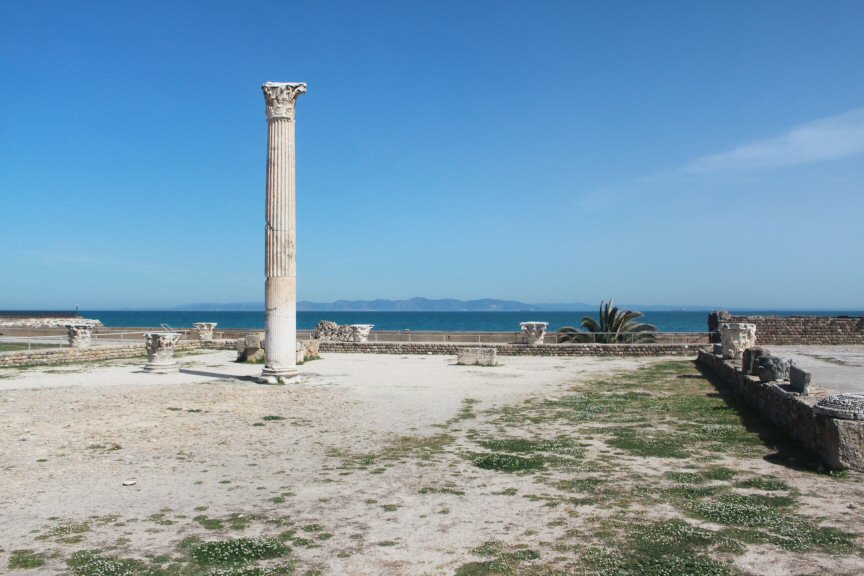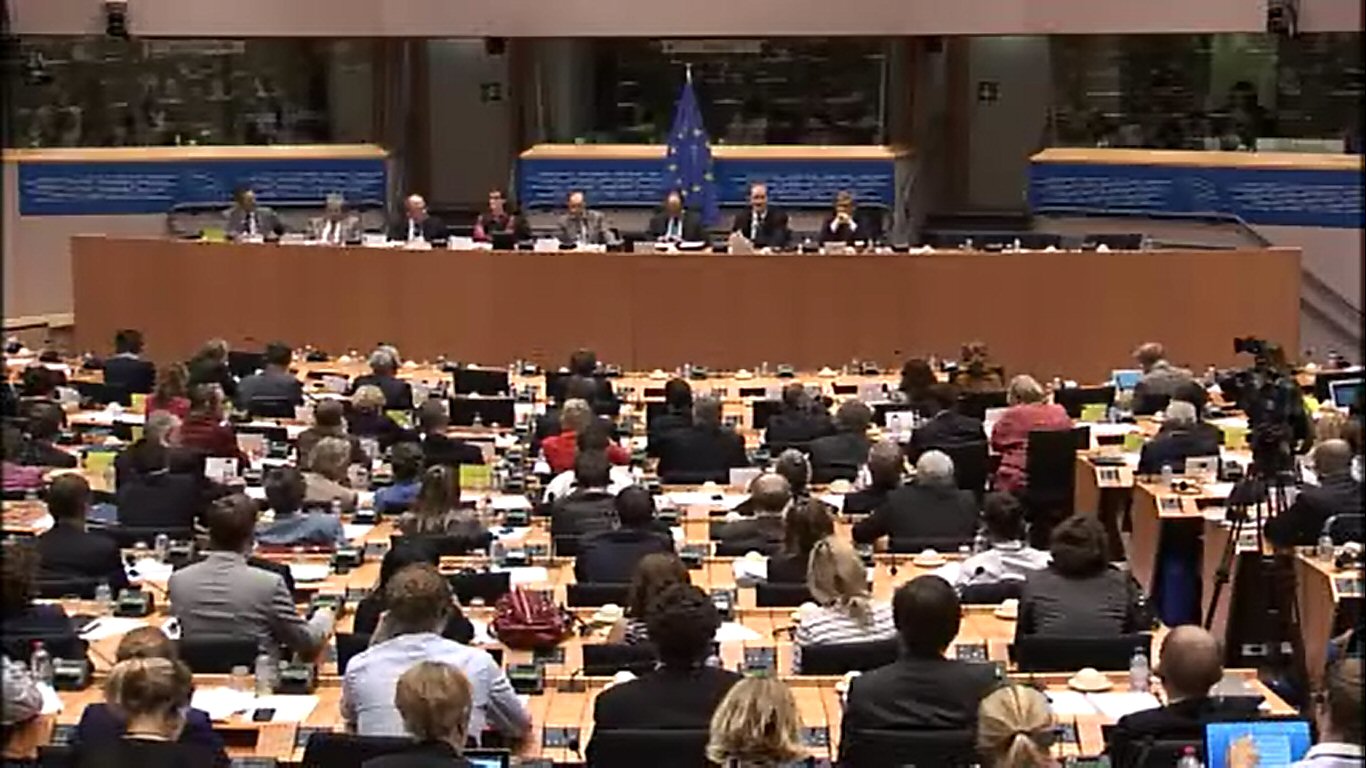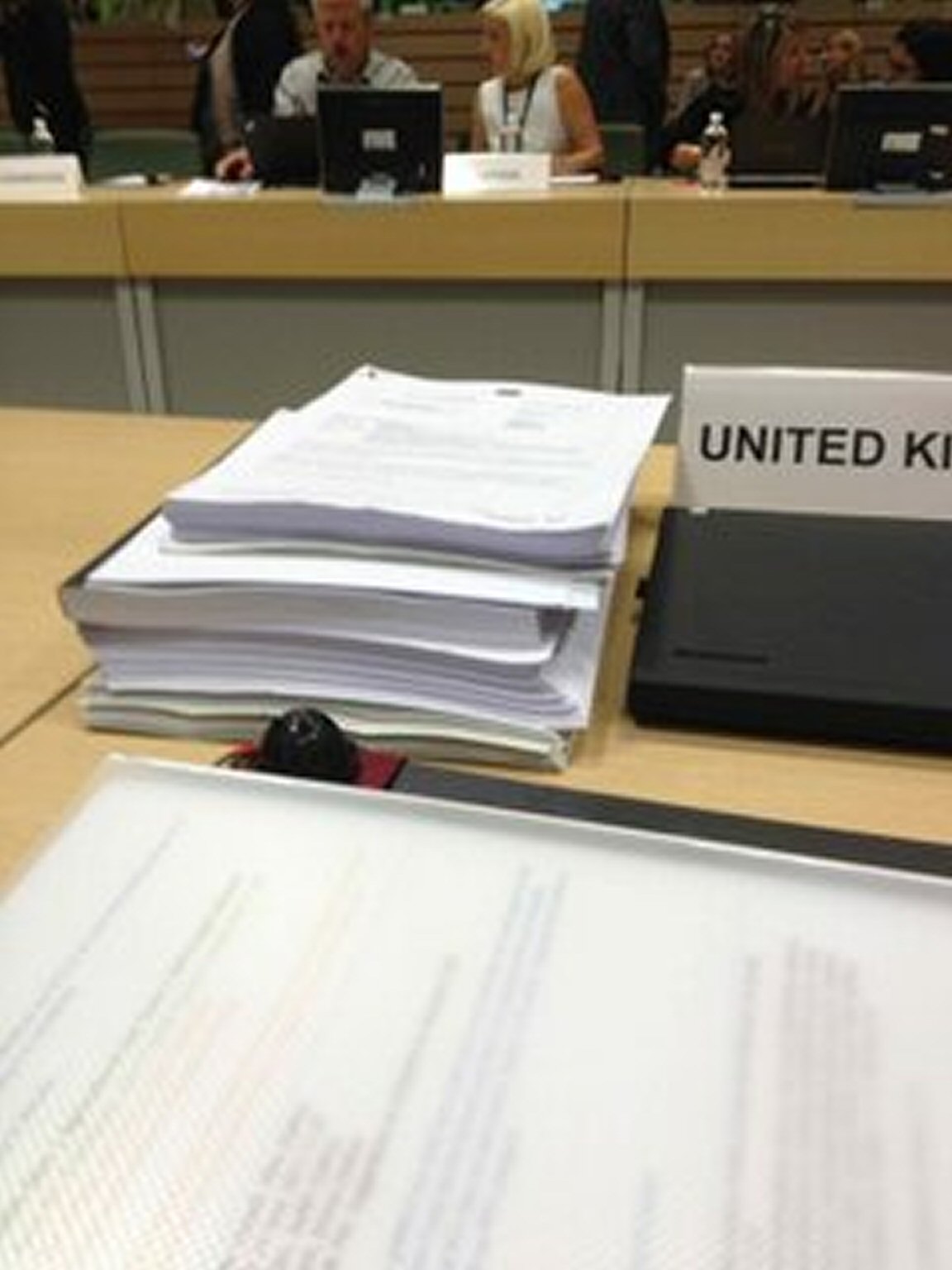The most defining characteristic of the political agreement reached on CAP reform in June 2013 in hindsight may not be the greening of Pillar 1 payments or the move towards greater ‘fairness’ in the CAP as a result of external and internal convergence, but rather the re-nationalisation of some aspects of agricultural policy with the devolution of much greater flexibility to member states in how the new CAP can be implemented.
This flexibility may be seen as a consequence of trying to manage a single CAP in an increasingly heterogeneous agricultural landscape in Europe following successive enlargements to an EU of 28 member countries.… Read the rest
Does the CAP cap agricultural spending in the EU?
Every so often the debate about how far and how fast powers should be transferred from member states to the Union level within the EU and vice versa gains momentum. This debate about the optimal degree of centralisation or decentralisation in policy-making is known as the debate about subsidiarity in EU terminology.
The principle of subsidiarity is now part of the Lisbon Treaty but there are many observers who feel that this does not work very well. The optimal degree of policy centralisation is part of the debate on the response to the Eurozone crisis as well as a key element in David Cameron’s demand in his London speech in January 2013 for the repatriation of powers from the Union to member states.… Read the rest
WTO EU Trade Policy Review 2013
Every two years the WTO secretariat undertakes a review of the EU’s trade policy including agricultural policy measures which affect trade. The agricultural section of the review builds on the EU’s notifications to the WTO under various agreements, notably the Agreement on Agriculture (particularly the notifications on domestic support, export subsidies and tariff rate quota utilisation) and the notification under the Agreement on Subsidies and Countervailing Measures. The latest EU trade policy review for 2013 was released last week following discussion in the WTO Trade Policy Review Committee.
The Trade Policy Review provides succinct summaries of the relevant EU farm legislation and policy instruments, even if some of its data (for example, on levels of domestic support) are a little outdated because of the time required to submit the relevant notifications.… Read the rest
The CAP budget in the MFF Part 3 – Pillar 2 rural development allocations
When the European Council agreed on the EU’s multi-annual financial framework (MFF) for 2014-2020 in February this year, the overall allocation to the CAP’s Pillar 2 was made known but not the individual allocations to member states. Apparently, in order to secure a final agreement, each member state was told its own allocation but not that of the other countries.
It was not until May, after repeated requests from the European Parliament’s rapporteur on the rural development regulation, Luis Capoulas Santos, that the Commission communicated the individual country totals to the Parliament negotiators in the trilogue process. However, until the publication of the European Parliament secretariat’s Note European Council Conclusions on the Multiannual Financial Framework 2014-2020 and the CAP these figures were not generally available.… Read the rest
The CAP budget in the MFF Part 2 – direct payment envelopes in Pillar 1
In my previous post I discussed some of the difficulties in comparing the money set aside for the CAP in the 2014-2020 Multiannual Financial Framework (MFF) and in the current 2007-2013 MFF. Among the issues highlighted were the counterfactual baseline to be used, whether to compare period-to-period or end-year to end-year figures, and the importance of adjusting the current MFF figures to ensure like-with-like comparisons with the next MFF period.
The European Parliament secretariat’s Note European Council Conclusions on the Multiannual Financial Framework 2014-2020 and the CAP also contains a detailed breakdown of Pillar 1 direct payment envelopes by member state for the two MFF periods, allowing us to see which countries are winners and losers under the decisions taken by the European Council.… Read the rest
The CAP budget in the MFF agreement
Today the European Parliament approved the political agreement on the MFF reached with the Irish Presidency, thus concluding the negotiations on the EU’s medium-term financial framework until 2020. A mandatory review will be undertaken by the Commission before the end of 2016 taking account of the economic situation at that time. The actual MFF Regulation and the accompanying inter-institutional agreement including various declarations by the parties will be voted in the Parliament in the early autumn once the Council has adopted the draft MFF regulation.
The overall MFF ceiling and the allocations by heading as agreed by the European Council in February 2013 were not changed in the final agreement.… Read the rest
A triumph for the Irish Presidency – a damp squib for CAP reform
Yesterday morning (Wednesday 27 June), in a final trilogue, the Irish Presidency reached a political agreement with the European Parliament negotiating team on remaining outstanding issues on the CAP reform dossiers. In the afternoon the deal was discussed in a relaxed COMAGRI meeting.
Although no formal vote was taken, Paolo de Castro, the COMAGRI chair, concluded that there was broader support among the Parliament’s political groups for the final outcome than there was for the vote on the negotiating mandate in March. The Presidency had secured a more flexible negotiating mandate at the June Agricultural Council meeting earlier in the week, so although there is as yet no formal reaction from agricultural ministers it seems clear this agreement will also be supported by the Council.… Read the rest
The June Agricultural Council issues paper
Last Friday the Presidency circulated an issues paper which sets out its views on the potential landing zones on some of the key issues in the CAP reform negotiations. There are some 22 issues on the list; the paper warns that this list is not comprehensive and that other issues are still under negotiation, underlining the scale of the challenge in reaching a political agreement in the trilogue process over three days this week.
The 22 issues are:
-
• Implementing financial discipline to finance the crisis reserve and/or to avoid breaches of the financial sub-ceiling;
• Active farmer definition;
• MFF issues including capping and degression;
• Internal convergence options for basic payments;
• Observance of greening on land not covered by entitlements;
• Defining Ecological Focus Areas for the greening payment;
• Equivalence, baseline and double funding of greening practices;
• Greening penalty;
• Treatment of young farmers:
• The percentage ceiling for coupled payments;
• Treatment of small farmers;
• Ending of sugar quotas;
• Vine planting rights;
• New definition of areas of natural constraints;
• Financial provisions in the rural development regulation, including co-financing rates and mandatory minimum spend on agri-environment/climate measures;
• Obligation on MS to pay interest on late payments;
• Suspension of monthly payments for failures of key controls;
• Suspension of monthly payments for non-submission of control statistics;
• Recovery of undue payments;
• Harmonisation of payment dates.
The June Agricultural Council
All roads lead to Luxembourg this weekend where agricultural Ministers begin to gather on Sunday for individual trilaterals with the Irish Presidency and the Commission prior to the formal opening of the Agricultural Council meeting on Monday next. The schedule for the following few days is set out in this post from Alistair Driver of the Farmers Guardian.
Monday morning is set aside for a formal Council discussion with a view to revising the Presidency’s mandate for the trilogue negotiations with the Parliament. Parallel trilogues with the Parliament’s negotiating team on the four regulations will then take place on Monday afternoon.… Read the rest
The MFF compromise texts
Euractiv.fr yesterday published the texts of the three documents which make up the compromise package to be put to the Council and Parliament following the trilogue meeting on 19-20 June. The three documents are:
-
Draft COUNCIL REGULATION laying down the multiannual financial framework for the years 2014-2020
-
Draft Inter-Institutional Agreement between the European Parliament, the Council and the Commission on budgetary discipline, cooperation in budgetary matters and on sound financial management
-
Draft declarations relevant to the above two pieces of legislation.
(Note that the texts can be read but not downloaded from the Euractiv.fr website; a downloadable copy of the draft MFF regulation is available here.)… Read the rest





